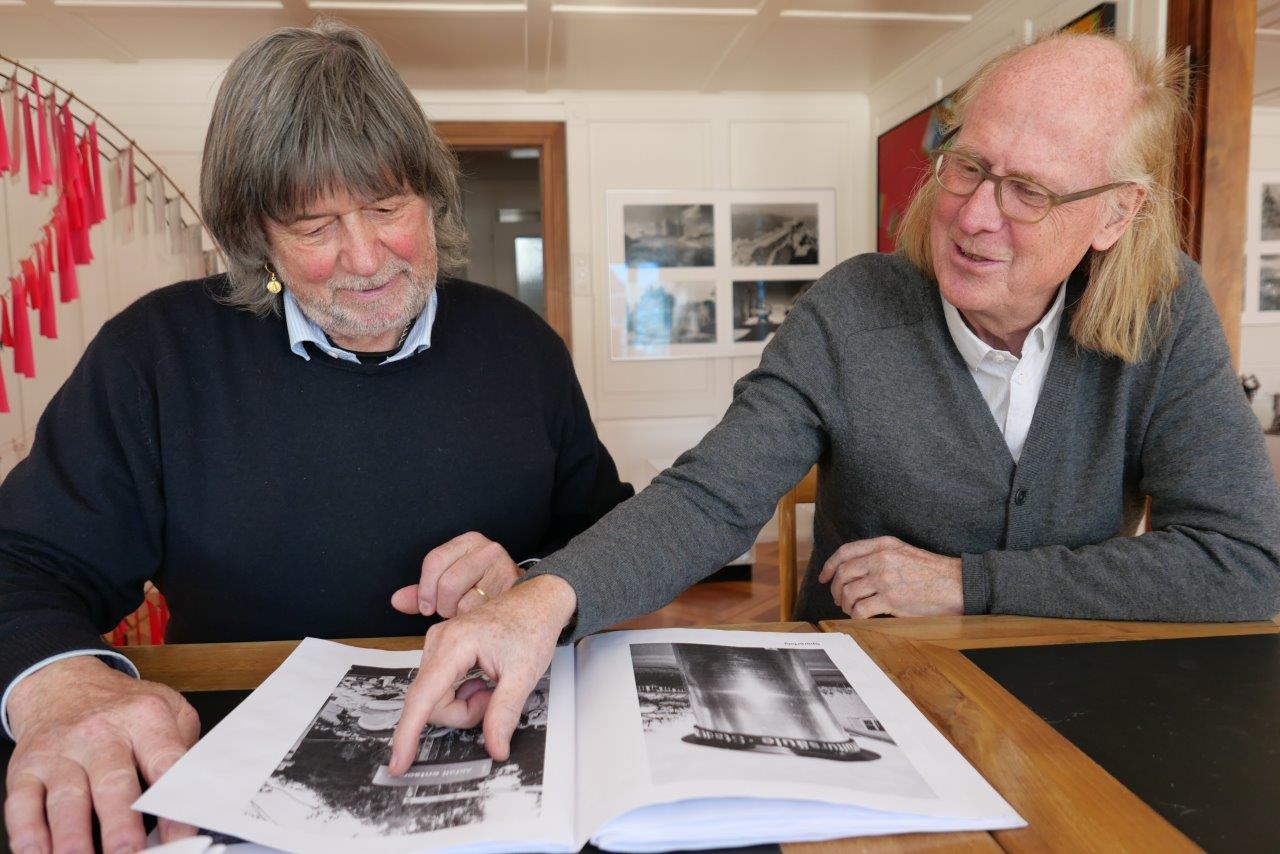
‘From what remains and is left behind, you can reach many conclusions’
Mäddel Fuchs is one of the few street photographers to have made a name in Switzerland. His work is characterised by bitter-sweet irony and the ambition to reveal people through the things they use. SWI swissinfo.ch spoke with the 70-year-old about his work, and his new book.
In 1974, at the age of 23, Mäddel Fuchs gave up the study of medicine to become a photographer. He modelled himself on the big names in American and French street photography: Brassaï, Walker Evans and Pete Turner were his heroes. For six years, Fuchs applied himself to all aspects of photography, but failed to make a breakthrough. Only later, after an unsuccessful interlude as a winegrower, did photography become his permanent vocation.
His pictures are characterised by charming and sometimes mordant irony, play on words, and the absence of people, who still somehow appear present. The pictures making up this collection are not classified geographically; Fuchs says they were taken both “somewhere and everywhere”.
SWI swissinfo.ch: As a young man, you gave up the study of medicine. What happened ?
Mäddel Fuchs: I came from a medical family, and my parents and grandparents were doctors. That was the way I was supposed to go too. But I soon realised that I wasn’t at all suitable for studying medicine. In the 1970s, travelling with a friend across America, I took my father’s old Pentax with me. With that camera under my arm, I was happier than I had ever been in my life.
SWI: What were the reactions to this decision of yours? Did you find support?
My mother and father were both enthusiastic photographers. Photography was a part of everyday life in our family. I was already taking pictures as an 8-year-old. Yet I did not receive any support – far from it. My father never forgave me till the day he died. Those were tough times for me. I was a leftwing student in the 1970s, a spoiled brat from a bourgeois home. But I had the good fortune to be doing what I liked to do.
SWI: You can now look back on 40 years as a photographer. What interests you the most?
In the earliest work I did with a view to producing books of photography, I was interested in the Appenzell region. It was there I did most of my work in the early years. I didn’t want to shoot picturesque landscapes; I had an anthropological focus on the traditions of the region.
SWI: Photography itself has changed. How have you coped with all the technological developments?
By ignoring them! (laughs loudly) I must be the last dinosaur taking pictures solely in analogue format. I don’t even own a digital camera. That was a risk at one time – it could have shut me out of the market. But I’ve never regretted that decision. For me, a picture is composed in the moment I click the shutter. It’s got to be complete right then.

SWI: Your new illustrated volume is entitled “Somewhere and Everywhere”. What’s behind the name?
Where a picture originated from is not important for me in this book. They are snapshots from a period spanning forty years, a way of looking at the world or at a particular event; sometimes light-heartedly, in a good mood, sometimes in a bitter, angry mood. A picture taken in France, say, could also be valid in Germany or Switzerland too. Even time is not important. It’s deceptive – pictures that may seem old may have been taken quite recently, or the opposite.
SWI: At first glance, your pictures make one smile before making them think…
Yes, they need more than just a superficial glance. I like to begin with a smile, but if you take your time to look, the smile should fade as you think about the picture. I want to illustrate profoundly human things, without portraying people. From what remains and is left behind; you can draw many conclusions
“Irgendwo und ÜberallExternal link” Mäddel Fuchs, Edition Scheidegger & Spiess












































You can find an overview of ongoing debates with our journalists here . Please join us!
If you want to start a conversation about a topic raised in this article or want to report factual errors, email us at english@swissinfo.ch.